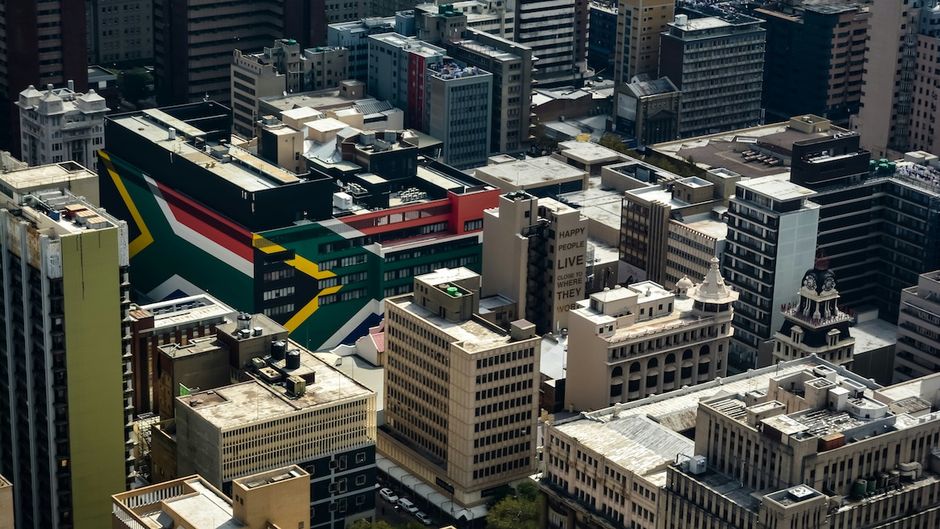No party is able “to forge a prosperous non racial future”, say evangelicals ahead of South African election
South Africa goes to the polls amid “growing inequality and unemployment” and fears of a return to apartheid. “Churches live politics in private”, say evangelical leaders.
Protestante Digital · CAPE TOWN · 28 MAY 2024 · 10:40 CET

South Africa will hold on 29 May its seventh election since the apartheid era.
The African country, which this month celebrates 30 years of independence and the end of colonial occupation and racial segregation, is currently facing a complex situation.
“Lack of accountability by government, growing inequality, unemployment, service delivery, and crime”, are some of the key factors in these polls, says the general secretary of the Evangelical Alliance of South Africa (TEASA), Moss Ntlha.
As part of the BRICS group of emerging economies, South Africa has increased its share in global GDP per capita growth. However, the country still has an unemployment rates of over 32%, which rise to 42.2% among 15-34 year olds. Almost structural economic inequalities are visible.
“Any new government will face the same socio-economic challenges”, warns Ntlha in an interview with Spanish news website Protestante Digital.
With the inflation at 5%, other common concerns are crime and insecurity for between 36% and 41% of the population, according to Democracy in Africa, and the fact that up to 70% of those surveyed by Afrobarometer believe that the government could and should do more to protect the environment.
Nothing new among the candidates
As it happened in 2019, the main candidacies are once again monopolised by the same parties.
The favourite is once again the African National Congress (ANC), Nelson Mandela's party, which has increasingly lost more and more MPs in the National Assembly until it reached an all-time low (230) with Cyril Ramaphosa in the last elections.
Various corruption cases, such as that of former president Jacob Zuma, who had to resign in 2018 and has been excluded by the Constitutional Court, have weakened the party that played a prominent role in the independence of the country. Some analysts even speak of a possible historic defeat in the upcoming elections.
Corruption “is a concern for most South Africans. A government appointed commission on corruption recently presented the nation with a report detailing astonishing levels of corruption by the ANC”, says Ntlha.
“Confidence is at an all time low across the nation. The problem many have is that the opposition does not inspire much confidence either”, he adds.
A return to apartheid?
The general secretary of TEASA, explains that the main opposition force, Democratic Alliance (DA), “is a historically white party that opposes some of the economic policies aimed at transforming the economy in the interest of all South Africans”, and “it has also failed to retain black leaders to the party, many of whom have accused it of racism”.
“That is what raises the fear of a return of apartheid if they come to power at the national level”.
At the other end of the spectrum, the third most voted party is the Economic Freedom Fighters (EFF), led by the controversial Julius Malema, who sang a song called "Kill the Boer" (a term for the former Dutch settlers) at a public event.
“Malema thrives on populism, making promises to the poor that many suspect he is unlikely to keep. As a former ANC youth leader, he also has a reputation of corruption and unaccountability”, points out Ntlha.
For the evangelical representative, “neither the mainly black ANC or the mainly white DA have the recipe, beyond rhetoric, to forge a prosperous non racial future for South Africa”.
“Both seem unable to harness the strengths of both sides and hold them together in the long haul to drive the required growth for the common good”, he adds.

Time for the grand coalition?
While at the national level, the ANC has always ruled with an absolute majority, at other levels of government there have been coalitions. Many wonder how an agreement between opposing parties would work at the state level.
“Coalitions are new to the South African democratic order, and when they occurred at the local level, they have been a disaster in terms of lack of results and political coherence”, underlines Ntlha.
“Evangelical churches are not open to talk about politics”
According to TEASA, there are some ten million evangelical Christians in the country, yet so far “no party that takes an evangelical approach to issues such as abortion, LGTBIQ+ policies or the relationship with Israel has achieved sufficient representation”.
South Africa has brought Israel to the International Court of Justice, accusing it of genocide for its actions in Gaza.
“The African Christian Democratic Party tried to focus on these issues, but received minuscule support among evangelical Christians”, says Ntlha.
For the leader of the Evangelical group, “the interaction between faith and politics is largely based on social issues”, although some evangelical voices have spoken out on other issues, such as the increasing economic colonisation by other countries, such as China.
However, he says, “evangelical churches in South Africa are generally not open to talk about politics, they tend to keep their political views private, in the same way they used to do with their faith a few decades ago”, laments Ntlha.
Despite all that, the evangelical leader has seen some changes for the elections, such as “independent candidates”, some of whom “are evangelicals and count on evangelicals to vote for them”, although “other Christians will decide their vote on the basis of race or social class”.
One more year
Learn all about our #OneMoreYearEF campaign here (English).
Published in: Evangelical Focus - world - No party is able “to forge a prosperous non racial future”, say evangelicals ahead of South African election
